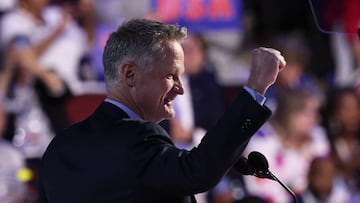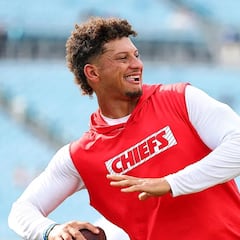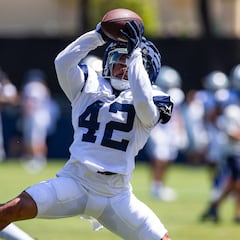NBA vs. NFL: Do America’s Top Leagues Lean Democrat or Republican?
The NBA and NFL stand out not only for their athletic prowess but also for the distinct political leanings of their fan bases that lean either left or right.


The NBA and NFL are more than just leagues where athletes compete for championships. They are cultural institutions with significant social influence, shaping and reflecting the broader political and cultural climate.
Over the years, these leagues have been perceived by the public as aligning with different political ideologies: the NBA with progressive, Democratic values, and the NFL with conservative, Republican ones. While this perception is not absolute, it is rooted in the actions, demographics, and cultural contexts surrounding these leagues.
The NBA: A Liberal Stronghold
The NBA has long been associated with progressive values. This trend is reflected in the political leanings of its fan base, which skews significantly towards the Democratic Party. Several factors contribute to this alignment:
- Urban Demographics: NBA teams are often based in major cities, which tend to have more liberal populations. Cities like San Francisco, home to the Golden State Warriors, and Los Angeles, home to the Lakers and Clippers, are known for their Democratic leanings.
- Player Activism: NBA players and coaches are among the most politically active in professional sports. Figures like LeBron James and Steve Kerr have been vocal about social justice issues, often criticizing conservative policies and leaders. This activism resonates with a fan base that values social progress and equality.
Let’s go, Coach Kerr! Thanks for bringing home the gold for Team USA, and for your leadership at a crucial moment for our country. pic.twitter.com/5RwZaJ6qyH
— Barack Obama (@BarackObama) August 20, 2024
- Youth Appeal: The NBA’s popularity among younger audiences, who generally lean more liberal, further cements its Democratic affiliation. The league’s embrace of modern culture, from fashion to music, aligns well with the values of younger generations.
The NFL: A Political Crossroads
In contrast, the NFL’s fan base is more politically diverse, reflecting the league’s broad appeal across various demographics and regions. While the NFL does not lean as heavily towards one political party as the NBA, certain trends are noticeable:
- Regional Variations: The political leanings of NFL fans can vary significantly by region. Teams based in conservative areas, such as the Tennessee Titans and Indianapolis Colts, tend to have fan bases that lean Republican. Conversely, teams in more liberal regions, like the Seattle Seahawks and New England Patriots, attract more Democratic supporters.
- Cultural Traditions: The NFL’s deep roots in American culture, particularly in rural and suburban areas, contribute to its diverse political landscape. The league’s emphasis on tradition and patriotism resonates with conservative values, while its efforts to address social issues appeal to liberal fans.
TRENDING: Many #Lions fans are “disgusted” that head coach Dan Campbell did a promo bit with Hulk Hogan, especially after he spoke at the RNC last week.
— MLFootball (@_MLFootball) July 25, 2024
Hogan was at practice today with the team & players
pic.twitter.com/CbMycC92cN
- Economic Factors: The NFL’s fan base includes a wide range of socioeconomic backgrounds. This diversity in economic status often translates to a mix of political affiliations, with wealthier fans leaning Republican and working-class fans leaning Democrat.
While these perceptions of the NBA and NFL as Democratic and Republican institutions are widespread, they are not set in stone. Both leagues have shown a willingness to evolve in response to changing cultural and social dynamics.
Related stories

Bears vs Chiefs: how to watch
In recent years, the NFL has made efforts to address social justice issues through initiatives like “Inspire Change,” which supports programs focusing on education, economic advancement, and criminal justice reform. This shift reflects a broader recognition within the league of the importance of addressing the concerns of its diverse player base and fan community.
The idea that the NBA is a Democratic league and the NFL is a Republican one is an oversimplification. These perceptions are shaped by a complex interplay of factors, including player activism, fan demographics, and the political affiliations of team owners.

Complete your personal details to comment